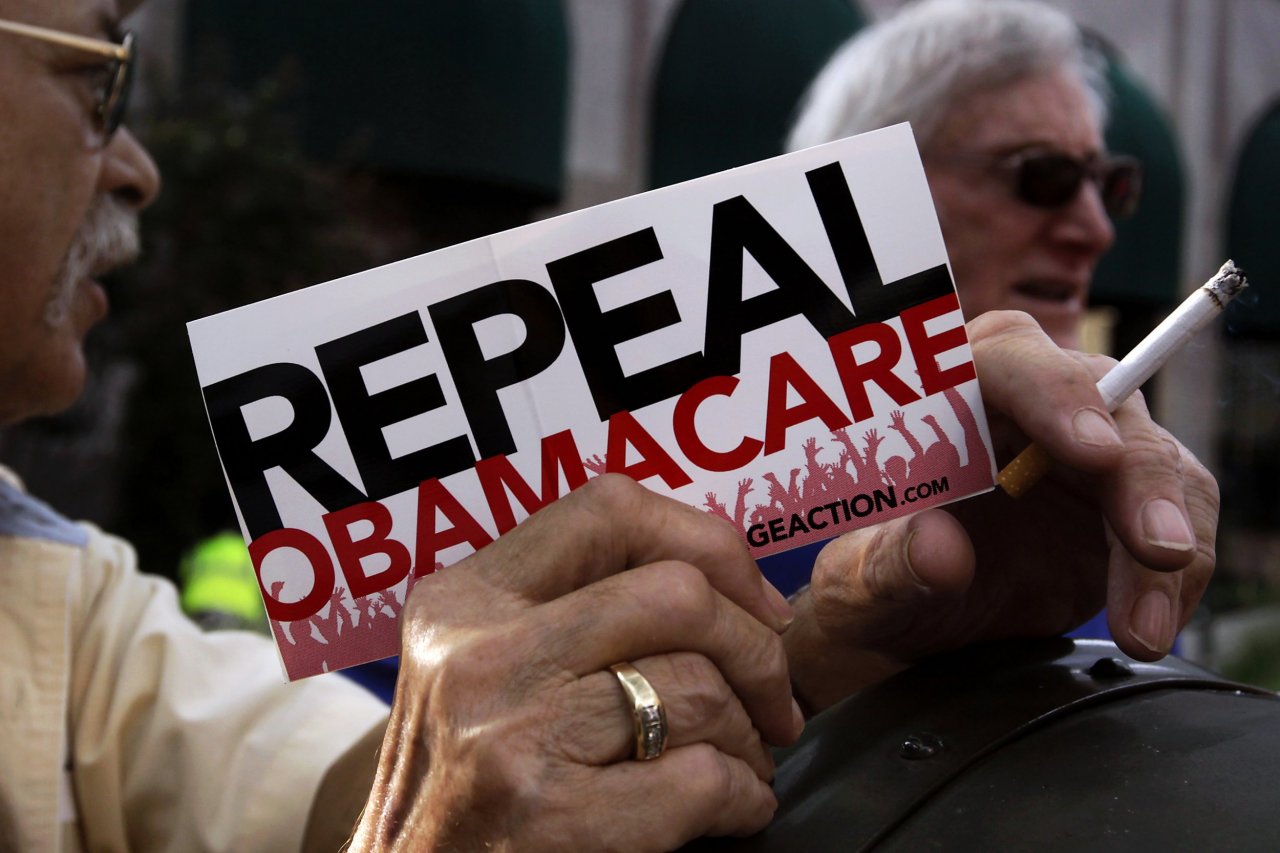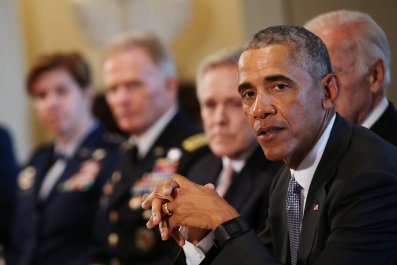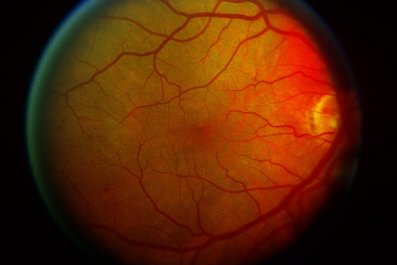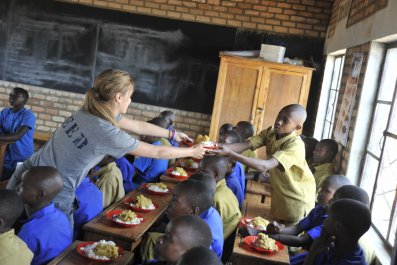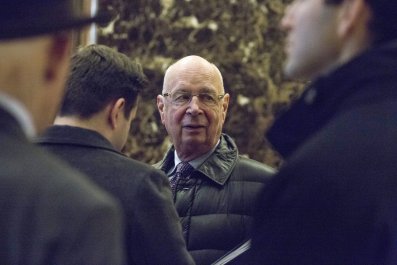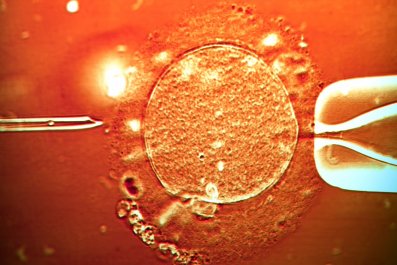Judy Keller, 69, has always relied on Highlands Hospital in Connellsville, Pennsylvania, for medical care, just as her parents did before her. When she walks through the halls, she recognizes faces from the community, including some from her days as a schoolteacher. The 64-bed facility, she says, is a mainstay of this rural southwest Pennsylvania town. "This hospital, all my life, has been here," says Keller, now retired. "[It] helps a lot of people who don't have adequate health care coverage—and I don't know what they would do without it."
Aside from providing health care to a largely poor population, Highlands provides hundreds of jobs in a town that locals say never recovered after industries such as coal mining and glass manufacturing disappeared. But in the wake of the presidential election, Highlands, like many other rural hospitals, will likely face new financial challenges. The Affordable Care Act, which President-elect Donald Trump has vowed to repeal, has been a lifesaver for these vital but financially troubled centers. The health care law expanded Medicaid to cover tens of thousands of previously uninsured patients. This, in turn, provided new revenue for rural hospitals, which often serve a poorer, sicker patient population.
The law also created a program that allowed some of these facilities to buy prescription drugs at a discount. "All these rural hospitals are operating on thin margins. The removal of any income source or coverage, or expansion of bad debt, is going to create significant financial hardship," says Alan Morgan, CEO of the National Rural Health Association. Repeal of Obamacare without a similar replacement could force many of them to close.
Ironically, 64 percent of the people here in Fayette County—one of the state's poorest—voted for Trump. Pennsylvania, which has the third-largest rural population in the nation, played a pivotal role in his upset victory in November.
Rural hospitals have long operated on the edge. In the past six years, more than 70 such facilities have closed, citing financial duress, and almost 700 more are at risk. Meanwhile, the need for reliable health care remains. Heart and lung disease are widespread in rural areas, and addiction to opioids is acute.
Nationally, the Medicaid expansion under Obamacare offered a bit of stability for some rural hospitals at risk. Researchers say it disproportionately benefited such facilities, particularly in Pennsylvania and other states with large rural populations, such as Illinois, Kentucky and Michigan. In Pennsylvania, 625,000 people enrolled in the expanded Medicaid program; close to 300,000 came from rural areas, says Andy Carter, president of the Hospital and Healthsystem Association of Pennsylvania. As of October, about 42,700 of Fayette's residents had Medicaid. That's close to one-third of the county's population.
Despite that, Highlands Chief Financial Officer John Andursky barely noticed the increase. The threat of closure is a "daily concern," he says. "It seems like you're taking two steps forward, three steps back. It's not like I can look to five years out, because I have to worry about tomorrow. I can't worry about next year."
That pessimism can be heard throughout this town of about 7,600 residents. While the passage of Obamacare was described as historic, many here do not think it helped them. Like many other states, Pennsylvania re-branded its expanded offering of federal insurance program for the poor, fearing that "Medicaid," which is also often referred to as "Medical Assistance," would be off-putting; now it is called "Healthy PA." Many don't know the extra aid came from Obamacare.
Bryan McMullin, who works in Connellsville's river-rafting business, got coverage last year but says good health care remains hard to come by. "In this area, nothing's changed in 40 years, no matter who is president," he explains from a bar stool at a pub near the now-vacant glass factory. Daniel Martin, a Highlands patient who also works in the rafting trade, said he uses his new coverage for monthly medication. A Trump voter, he hadn't realized that coverage now could be in jeopardy.
Another twist in this story: Small towns like Highlands tend to be far sicker than the norm—more than one in 10 people in Fayette County are estimated to have diabetes. Out of the 67 counties in Pennsylvania, Fayette ranks 66th for health outcomes. More than a third of its residents are obese. It's tied with northern Potter County for the second-highest teen birth rate in the state. And it has a high rate of drug overdoses, according to the federal Drug Enforcement Agency.
Plus, the hospital is Connellsville's second-largest employer, after the school district. It contributes an estimated $15 million to the local economy, Andursky says. That's in a town where unemployment is already at 7.6 percent, up from last year and higher than the state and national averages.
There are other hospitals in the region, and they are having similar problems. Uniontown, about 15 miles away, has 175 beds—more than double what Highlands has—but no behavioral health services to treat problems like addiction. For more serious conditions, and trauma care, university hospitals are about an hour away—in Pittsburgh in one direction, and Morgantown, West Virginia, in the other. But rain and snow, combined with mountainous terrain and limited public transit, mean traveling even short distances poses hardship. "It is still challenging to have to travel even 20 miles to get your care," says Lisa Davis, director of Pennsylvania's Office of Rural Health and an associate professor of health policy at Pennsylvania State University. "It could take you all day to get to a one-hour appointment."
Neither the Trump transition team nor Republicans in Congress have released their plans to replace Obamacare. But, experts say, it's likely states will be getting less federal money for treating the poor. It is unclear how rural hospitals will compensate for the financial benefits they are likely to lose—or how many more rural hospitals will fall. For Connellsville, the future does not look bright.
Kaiser Health News is part of the nonpartisan Henry J. Kaiser Family Foundation.



